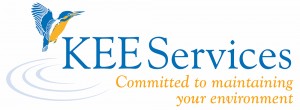Caring for Your Sewage Treatment Plant
Regular inspections and maintenance will help ensure your plant is operating at optimum performance and will maximise the lifespan of your equipment.
Do’s
- Follow manufacturers’ recommended doses for your water type when using household cleaning products. Soft water requires far less detergent concentration than hard water.
- Try to use cleaning products little and often so your treatment plant is not overloaded.
- Use liquids (not powders) in washing machines and dishwashers. Powders re-coagulate into clumps and can cause blockages.
- Try to spread your clothes washing throughout the week.
- Stick to the same washing, dishwasher and other cleaning products as the bacteria will work more efficiently with products it is used to treating.
- Think before you put anything down the sink, toilet or drains.
- Desludge your plant when required. Click HERE to view our one page KEE EXPERT guide on proficient desludging and how regularly your unit should be desludged.
- Ensure only toilet paper is flushed down the toilet and used in normal quantities.
- Leave your plant switched on while you are away or on holiday. Switching off your plant can cause damage to the motor and moving parts as well as kill the biomass.
- Compost all your organic food waste or use your local council bio-degradable waste recycling service (where applicable) to dispose of organic waste. Do not flush organic waste down the sink or drain.
Don’ts
- Don’t put sanitary towels, tampons, cotton wool or cotton wool buds, incontinence pads or any baby, cleaning or facial wipes down the toilet.
- Don’t flush rubber products or other non-biodegradable products down the toilet.
- Don’t pour fat, grease or cooking oil down the sink or drains. Fats suffocate the bacteria and inhibit the biological process. Everyday products such as milk, wine or beer increase the organic load and should also not be disposed of through the wastewater system.
- Don’t use neat disinfectant or bleach. KEE recommends that these products are only used at the minimum concentration possible, as they can restrict the biomass growth within the plant.
- Don’t tip medicine, mouth wash or any chemicals such as photographic fluid or garden products (e.g. Insecticides, weed killers and fungicides) down the drains as they will damage the biological treatment process.
- Don’t pour DIY products (e.g. paint, thinners, turpentine and white spirit etc.) or car fluids such as engine oil, anti-freeze, brake fluid etc. down the drains.
- Don’t allow rainwater, groundwater or large volumes of water (such as those from a swimming pool or Jacuzzi) into the plant. Chlorine kills the bacteria and the excessive water will increase the flow rate through the plant, not allowing sufficient treatment time.
- Don’t fit a waste disposal unit under your kitchen sink. Disposing of organic matter through the treatment system increases the organic load, creating bacterial overgrowth which will inhibit the treatment process. Only use a waste disposal unit if your plant is specifically designed to accept higher organic loads.
KEE who are a member of British Water, have a copy of their:
Code of Practice – A Guide for Users of Sewage Treatment Systems to download as a good starting point for information.
KEE Services recommend that your Sewage Treatment Plant should be regularly serviced to avoid any serious future costly problems – contact KEE.
Request a quote for a maintenance contract or call 01296 634500
